Newsletter - Spring 2023
News for supporters and friends of the Alzheimer Society of Canada.
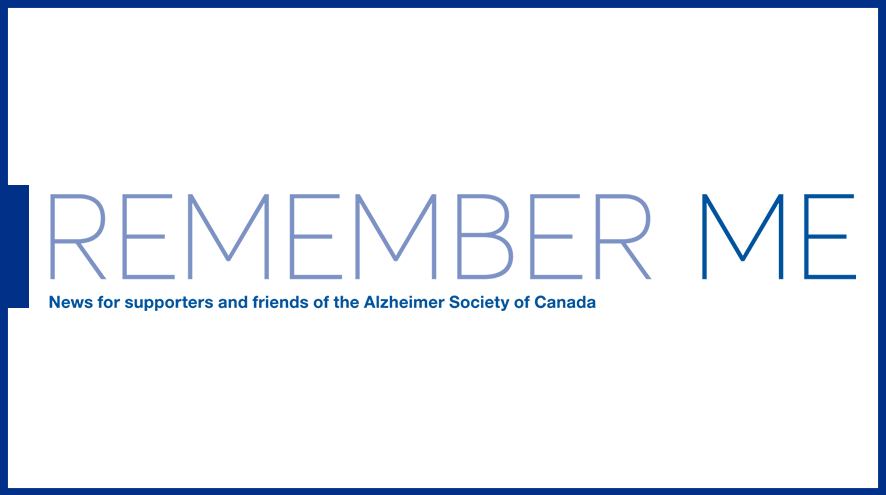
Your Support Changes Lives
Thank you for your interest and support. The contributions from donors help fund essential support programs and services that are a lifeline for people living with dementia and their caregivers. Their generosity also helps fund promising dementia research that could unlock answers and improve the quality of life of people touched by dementia.
In this newsletter, you can read about how the support from our donors empowers Canada’s brightest researchers to make life-changing advancements — from identifying more ways to reduce the risk of dementia to discovering pathways to new treatments. We’ve also included some illuminating findings from our Landmark Study about the impact of dementia in Canada.
I hope that you enjoy reading about the impact of our supporters, the latest news about dementia and the work of the Alzheimer Society. Thank you once again for your interest. Together, we can change the future of dementia.

Dr. Saskia Sivananthan
Chief Research Officer
Alzheimer Society of Canada
This is a Wake-up Call

The first volume of our Landmark Study, Navigating the Path Forward for Dementia in Canada, predicts a significant increase in the number of people living with dementia over the next three decades. Unless bold action is taken:
- Roughly 1 million Canadians are forecast to be living with dementia by the end of 2030, with the figure predicted to rise to more than 1.7 million by 2050.
- In 2020, the percentage of Canadians over 65 living with dementia was 8.4%. This figure is expected to increase to 13.2% by 2050.
- The amount of time family and friends spend providing unpaid care for people living with dementia could skyrocket to almost 1.4 billion hours annually by 2050.
While the forecast for dementia in Canada is alarming, the study also offers a glimmer of hope.
Read the report at alzheimer.ca/LandmarkStudy
Reducing Risks Offers Hope
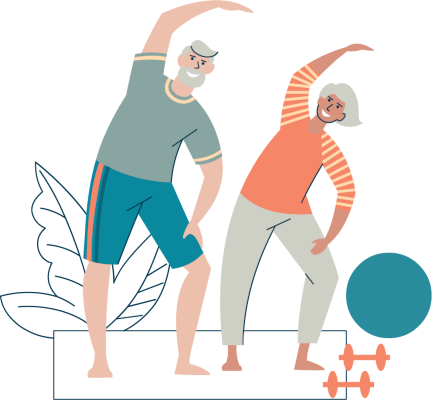
Our Landmark Study demonstrates that if we can delay the onset of dementia by even just one year, it would mean 500,000 fewer cases by 2050. Here are some evidence-based steps you can take to reduce your risk.
12 Actions for a Healthier Brain
- Move your body. Get plenty of physical activity into your days.
- Protect your heart and brain. Control your blood pressure, cholesterol and diabetes.
- Stay socially active. Engage regularly with family and friends.
- Manage your medical conditions. Stay on top of your overall health.
- Stimulate your brain. Take on mental activities such as reading, playing games or speaking a second language.
- Sleep well. Aim for at least 7 hours of shut-eye every night.
- Seek help for depression. Treatment is effective in the vast majority of cases.
- Avoid excessive alcohol intake. This includes wine, beer or any other alcoholic drinks.
- Protect your hearing. Avoid loud noises, get your hearing checked and use a hearing aid if you need one.
- Find meaning in life. People who live with purpose have better brain health.
- Avoid any head injury. Steer clear of activities that could put your brain at risk.
- Build healthy habits. Choose healthier foods, reduce stress, quit or reduce smoking, and get regular medical check-ups.
Learn more at alzheimer.ca/12actions
Making Connections: Hannelore's Story
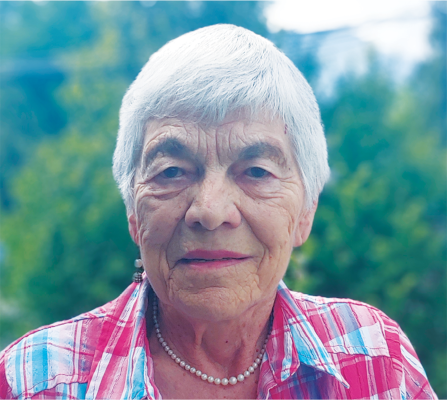
Caregiving is a big job. Every day is different, and you don’t know how your partner will be. Sometimes they’re happy and sometimes they’re upset. I would really encourage caregivers to attend Alzheimer Society support groups. It’s important to connect with people who have shared experiences and talk about what’s going on with your life. We learn from each other.
— Hannelore
Hannelore, care partner to her husband who lives with dementia, has attended caregiver support groups offered by the Alzheimer Society of B.C. since 2018.
To connect with your local Alzheimer Society, visit alzheimer.ca/HelpNearYou
Meet Our Researchers
Dr. Thalia Field

Detecting dementia earlier can help people access treatments sooner. However, current diagnostic methods are resource-intensive and/or invasive. Based on previous research that has shown that speech and eye movements become disrupted as dementia progresses, Dr. Thalia Field and her team are investigating how these indicators work in combination. Dr. Field plans to use her findings to develop an efficient, non-invasive screening tool for detecting dementia earlier.
Karl Fernandes
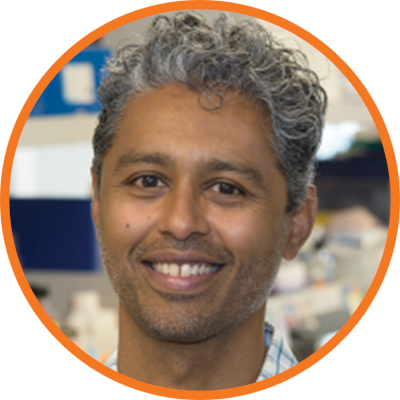
We know that lipids (fats) in the brain play a role in Alzheimer’s disease. Karl Fernandes and his team are exploring whether Alzheimer’s disease can be treated, or even reversed, by rebalancing the brain’s lipids. The team’s discovery of a lipid-modulating drug that improves multiple brain functions in a lab model holds great promise for the development of a new class of therapies for delaying or treating Alzheimer’s disease.
To learn more about the many research projects that you make possible, visit alzheimer.ca/Research
Who are you walking for?
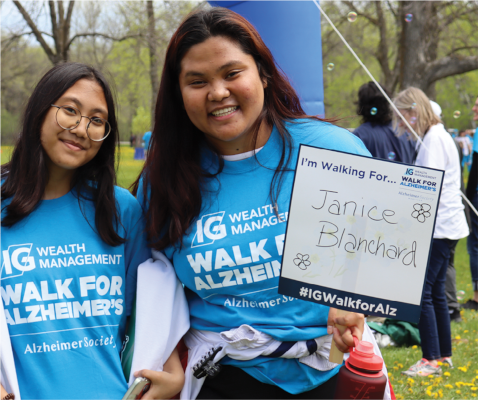
This year the annual IG Wealth Management Walk for Alzheimer’s will take place coast-to-coast during the weekend of May 27 and 28. Every spring for the past 8 years, participants have walked, jogged and cycled to raise money for this important cause. Join the movement this year and raise crucial funds that help ensure Canadians living with dementia have access to important programs and services through their local Alzheimer Society.
Register now to join a walk near you at walkforalzheimers.ca.
Monthly Donor Corner: Why I Give
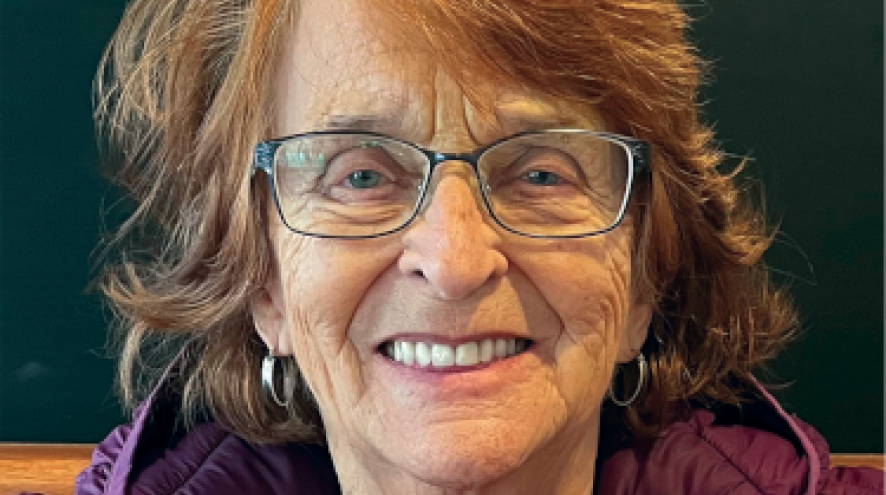
When she was 81, my mother, Beverley, started becoming anxious, depressed and confused. She’d forget to take her medication and she lost the desire to cook. It’s difficult to watch my mom get weaker and more confused every day. On the advice of friends, I reached out to the Alzheimer Society for support. They really helped me and earned my trust. I am honoured to do whatever I can to help ensure their support programs are there for other families.
— Deborah, caregiver to her mom Beverley
If you’re not already a monthly donor, please join now at alzheimer.ca/SpringNews2023
Words of Inspiration from our Donors

“My husband had Alzheimer’s for 10 years and I was his caregiver. It was painful and extremely challenging. I had unbelievable support from a caregiver support group that met weekly, and I could not have survived without that support.”
“My wife had Lewy body dementia. The Alzheimer Society arranged a weekly visit from a worker to give me a break. Your support was always available and readily given in our need.”
“Thirty years ago, my mother was diagnosed with dementia. The diagnosis came late, and we were faced with the unknown. The Alzheimer Society helped us understand the disease and helped my mother along the way.”
Preparing for the Future: Advance Care Planning

For peace of mind for you and your family, you may want to name a substitute decision-maker — someone you trust who can speak for you in the event that you can’t speak for yourself. It can mean the difference between the care you want and the care you might receive.
How to make your advance care plan:
- Think about what's important to you.
- Learn about different medical procedures and what they can or can't do.
- Decide on a substitute decision-maker — someone who is willing and able to speak for you if you can't speak for yourself.
- Talk about your wishes with those closest to you, including what medical procedures you want or don’t want.
- Record your wishes.
The Alzheimer Society can help you find out if your province/territory has legal documents regarding planning for future health care.
For more information, visit alzheimer.ca/Plan
